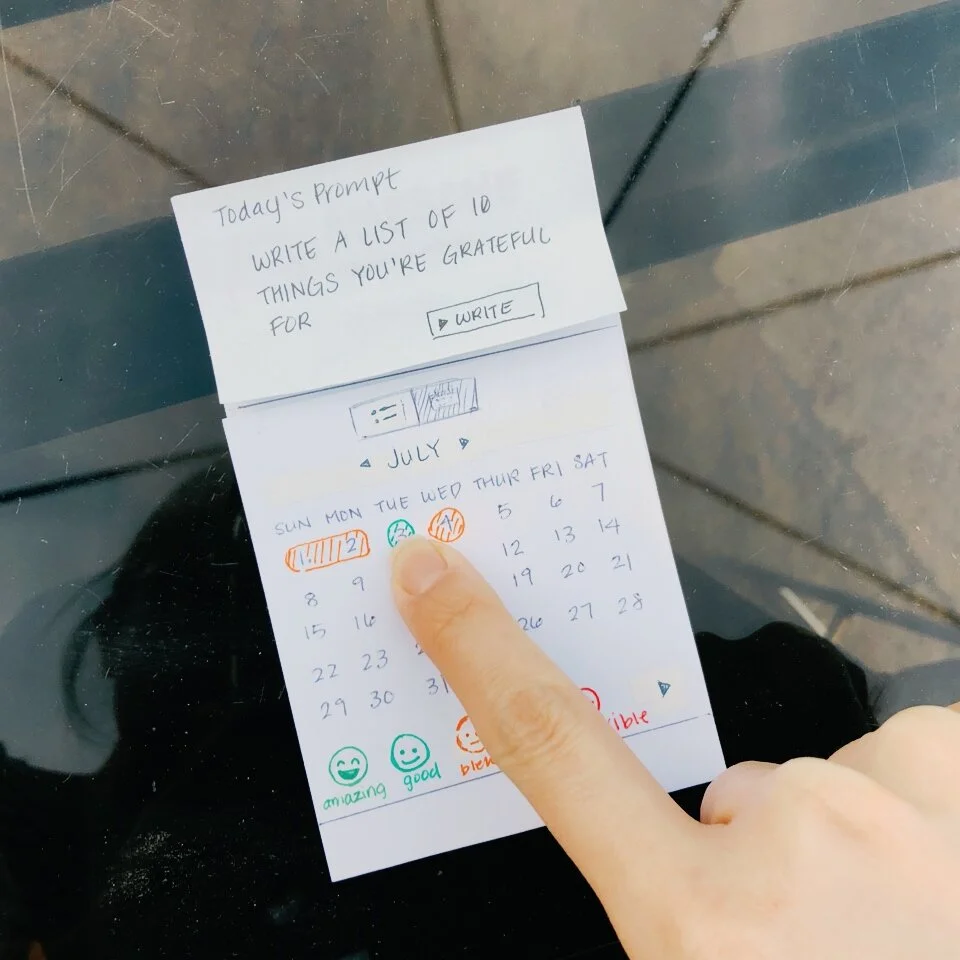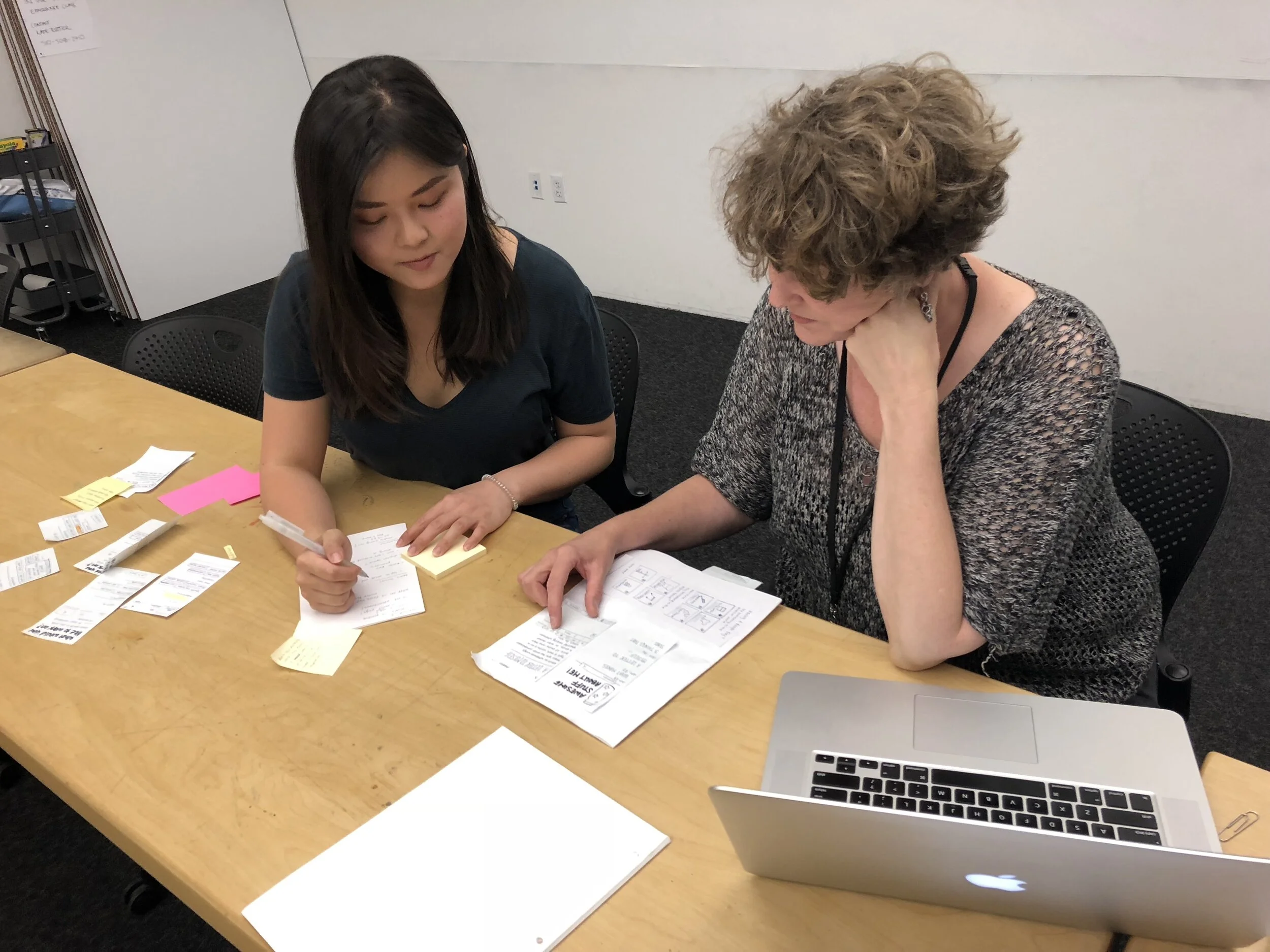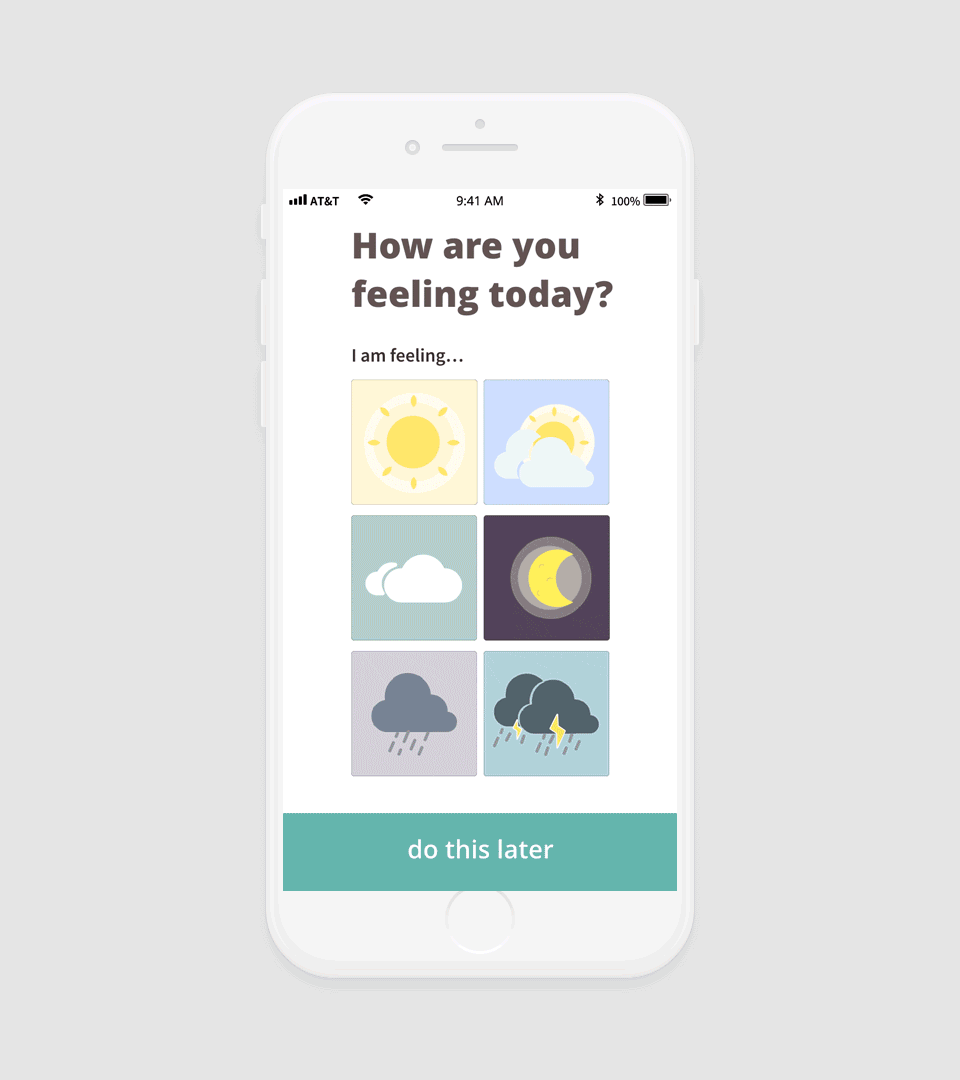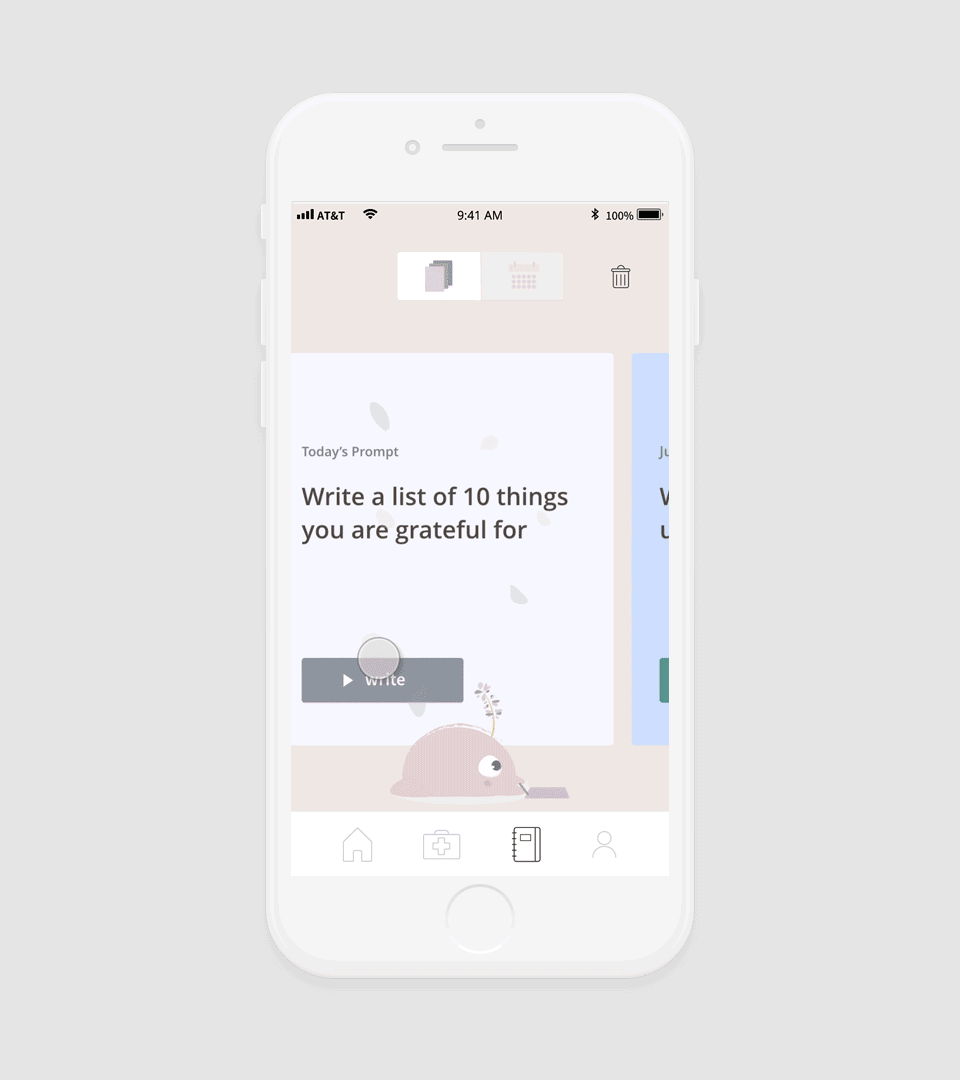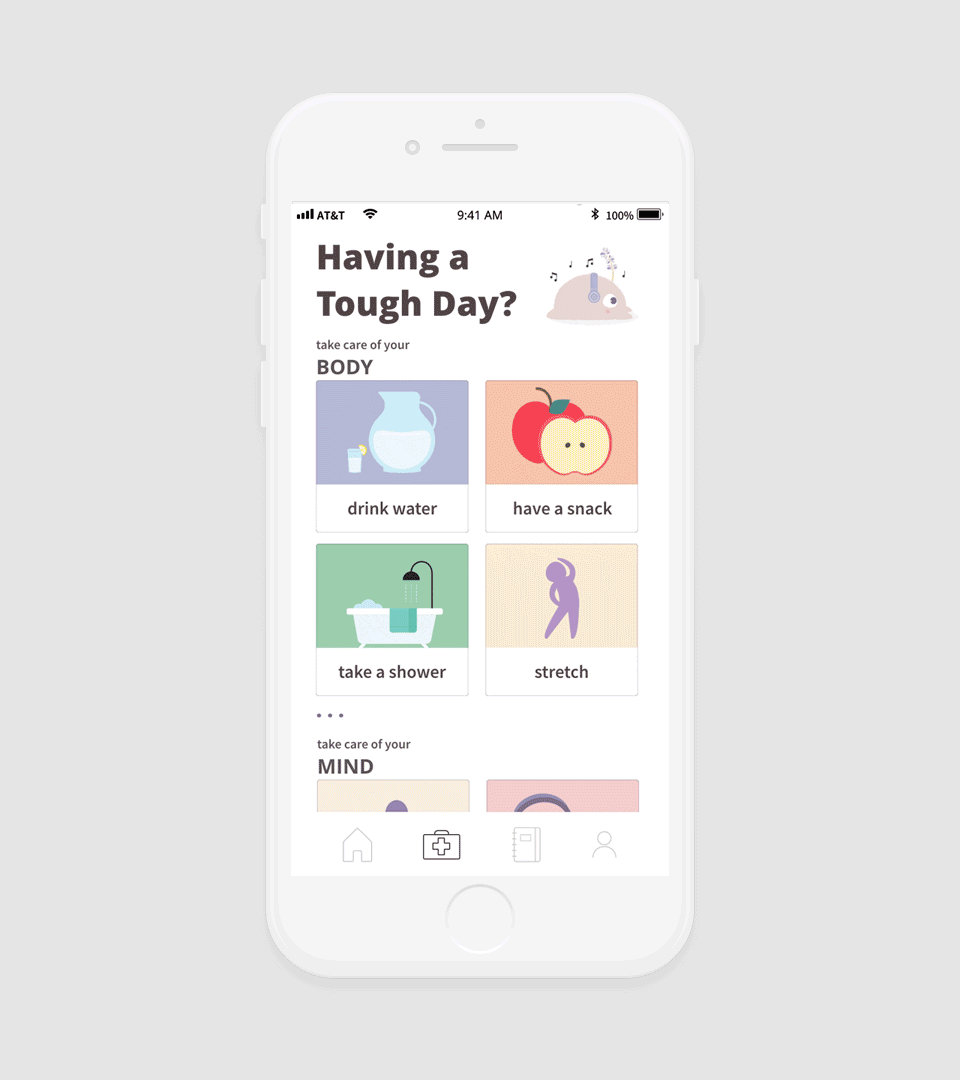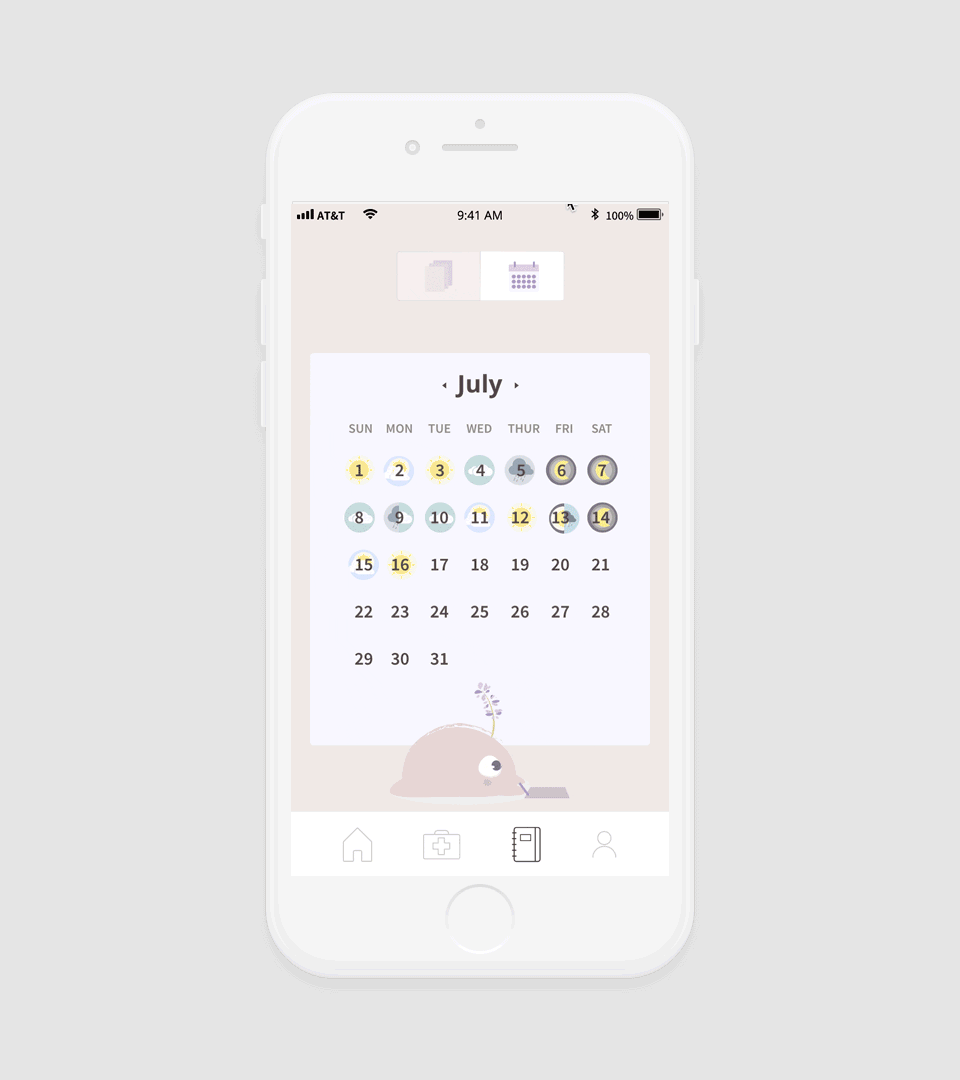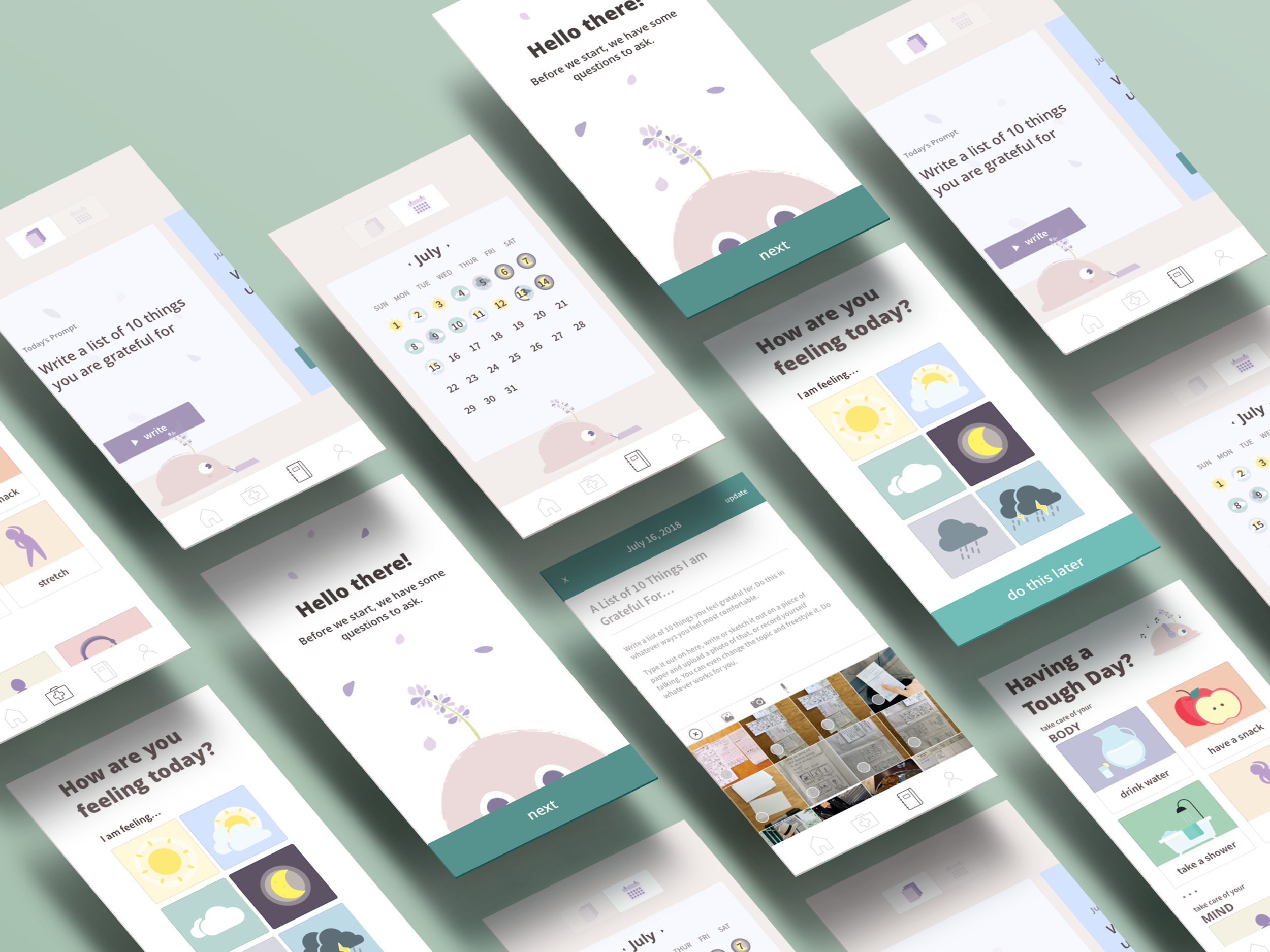
Background
Self-care is the act of caring for oneself and can come in many forms ranging from juice cleanses to taking a nice, hot shower at the end of a long day. There are many benefits to practicing self-care ranging from more self-confidence to a boosted immune system; however, people who are living and struggling with depression find it difficult to do so. How might we leverage self-care as a tool for people to help manage their mental health?
Solution Overview
Mementos is a digital tool-kit that empowers individuals who are experiencing depressive symptoms to use self-care as a way of managing their symptoms.
Mementos specifically targets those who seek to use self-care as a way not only managing their symptoms but also preventing themselves from entering a "downward spiral."
Mementos was never designed with the idea of replacing professional healthcare. It was designed in hopes of adding another tool to help users in their journey with mental healthcare.

The Research
Finding research participants provided to be much more difficult than I had expected. Even though we have come a long way in bettering our understanding mental health, the stigma against it still exists. When other factors such as race, culture, and gender are considered, it becomes apparent that this is a very complex space.
I was able to speak with 4 individuals who were kind enough to talk to me about their experiences. Even though we have made great leaps and bounds in the fight against the stigma surrounding mental illnesses, many people were still very reluctant to talk to me about what was and is still a very traumatic and vulnerable moment of their lives.
The Current User Journey
What was interesting was that even though these 4 individuals were very different people and came from different walks of life, they all experienced this "depressive cycle." Something usually triggers it, whether it be moving away to a new place or experiencing a stressful event in their lives.
They report feeling a tiredness that makes it difficult to do even the most simple tasks and no matter how much they rested or tried to rest, they always still felt exhausted.
This exhaustion is further exacerbated by a lack of motivation because “what’s the point if you can’t get anything done.” Unfortunately, this also creates feelings of anxiety and guilt for not being able to accomplish even the smallests of tasks.
These negative emotions then feedback into itself. It then became a vicious cycle in which the individual continues to spiral downward. These in-person accounts match the sentiments and experiences shared by anonymous users online.
The question becomes, what makes a bad day a little bit better?
The commonalities didn’t stop there—it turns out it’s the small things in life, such as showering or journaling, that can really help. It became apparent that self-care was helpful in either preventing the individual from relapsing into that depressive spiral or to lessen the severity of those symptoms.
“Shaving just makes me feel so much better on one of my bad days. I just feel clean again.”
Insights
Physical symptoms contribute to emotional wellness.
When a person feels well physically, it also affects their mental state and vice versa.
Exhaustion and lack of motivation live as two sides of the same coin
Since both exhaustion and lack of motivation feed into each other, it is important to intervene early to prevent the individual from entering a downward spiral.
Social support from friends and family is important but often not guaranteed
Mental illness is still taboo for a lot of people. This can create stressful situations in which the individual does not know or fear how their loved ones will react.
Usability Testing
Paper Prototyping
After sketching out some ideas, I started paper prototyping and usability testing with my target audience. In total, I was able to conduct two iterations of testing.
When I first started the usability testing, I wanted to know if what I was creating was indeed useful and relevant to my users and I also wanted to know if the language I was using was sensitive and thoughtful of their needs.
The valuable feedback I received from these testing led me to the final changes.
The paper prototype allowed me to iterate quickly and sometimes even co-design with the participants as we discussed the experience. It also brought a bit of joy into the usability testing process.
Learnings & Reflections
This project has been an incredible journey for me. I was able to dive deep into a space that’s so incredibly personal and affects people’s daily lives. I would like to thank all of my research participants who were so kind and willing to share their experiences with me as well as provide feedback.
Embrace the Trend
When I first came into this space, I was worried about the trendiness of self-care and how it may play into the stereotypes that mental illness are easily cured by taking a bubble bath. I really wanted to make sure that I was really grounding my work in things that were relevant to my users.
Throughout this process, I learned the trendiness aspect of self-care makes mental health a more approachable topic. Iit creates a more digestible entry point to talk about a much darker but very prevalent issue in our society,
Be Human
Mental health and self-care are very personal topics and very human focus. One of my initial goals was to reflect that not only in my work but also in my process.
This is a core belief that I integrated through this project. Everything from how I approached my interviewees to usability testing was really rooted in this belief that I should be making things about, for, and with people.
Next Steps
More Research & Usability Testing
Various factors such as time and access limited the amount of research and usability testing I would liked to have accomplished. I would like to focus the research and usability testing on refining the initial mood check-ins as well finessing how would curation of activities based on emotions would work.
The other aspect I would like to focus more research and testing on would be the first-aid kit. The initial idea was to allow users to be able to personalize the first-aid kit so that it truly meets their needs but more testing and research will be needed to figure out how much customization should be allowed and how much should be given.
Integration with Therapists and Doctors
Mementos was never designed with the idea of replacing professional healthcare but rather another tool for people to use in their healthcare journey.
Therefore, it makes sense to explore integrating healthcare professionals into this experience to see if this could help benefit the user.
Physical Touchpoint (Subscription Box)
Since mental health have a mental and physical component, it makes sense to explore adding a physical touchpoint that ties in with the digital experience. The initial idea was to create a subscription box would either contain objects related to self-care or to the app.
Since this subscription box is marketed under self-care, friends and family can also gift these subscription boxes to loved ones without pushing the boundaries of what the individual is comfortable with.




